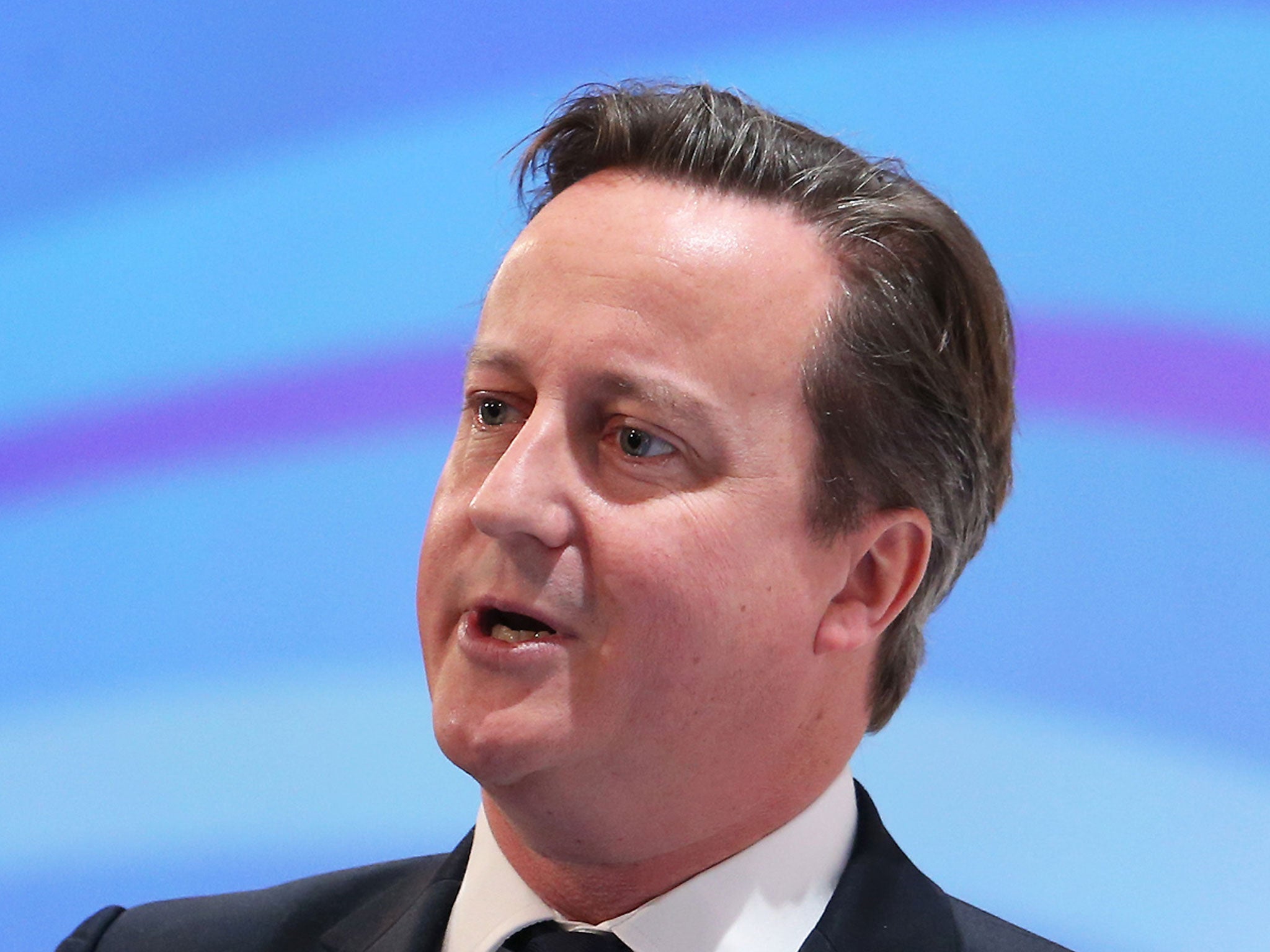David Cameron says evidence is ‘growing’ for climate change link to storms after Typhoon Haiyan
Philippines government has blamed 'climate madness' for devastating super-storm that has killed more than 3,600

Evidence was growing that climate change was responsible for extreme weather disasters such as typhoon Haiyan, the Prime Minister said today.
The Philippines government has blamed “climate madness” for the devastating super-storm that has killed more than 3,600 people and left more than 11 million displaced. Asked whether he agreed there could be a link, David Cameron said: “I’ll leave the scientists to speak for themselves about the link between severe weather events and climate change. The evidence seems to me to be growing.”
His words appeared to be the most explicit from any member of the British Government linking climate change to Haiyan.
Ed Davey, the Climate Change Secretary, said on Thursday that he was not certain climate change had led to the increased frequency of storms.
Many Conservative MPs actively deny any human contribution to climate change. Lord Lawson, the Tory former Chancellor, said this week it was a “scare” to suggest tropical storms were the result of climate change.
Speaking to journalists in Sri Lanka, Mr Cameron said: “There is no doubt there have been an increasing number of severe weather events in recent years.
“And I’m not a scientist but it’s always seemed to me one of the strongest arguments about climate change is, even if you’re only 90 per cent certain or 80 per cent certain or 70 per cent certain, if I said to you ‘There’s a 60 per cent chance your house might burn down; do you want to take out some insurance?’ You take out some insurance. I think we should think about climate change like that.
“Scientists are giving us a very certain message. Even if you’re less certain than the scientists it makes sense to act both in terms of trying to prevent and mitigate.”
He added: “As a practical politician I think the sensible thing is to say, let’s take preventative and mitigating steps given the chances this might be the case.”
Earlier this week Yeb Sano, the Philippines’ lead negotiator at a UN climate session in Warsaw, said there was a clear link between climate change and Haiyan, which has devastated his home town of Tacloban.
On the BBC’s Question Time on Thursday, Lord Lawson said there had been no increase in tropical storms for the past 100 years.
He added: “Typhoon Haiyan is terrible but I’m afraid these things happen in the tropics.
“The Atlantic hurricane season this year has been one of the quietest hurricane seasons in living memory.
“If you look at the Intergovernmental Panel on Climate Change, they say there is absolutely no connection between climate change and tropical storms.”
Mr Davey said on the same programme that climate change had increased the intensity of the damage caused by typhoons, but there was no evidence that they had increased in frequency.
Mr Davey said: “Sea levels are rising, that’s a fact. And that’s happening because of climate change.
“The higher sea-level islands that they have in the Philippines are far more vulnerable to these typhoons than they used to be.
“That’s the danger of climate change. It’s making these areas far more vulnerable which is why these disasters are on a scale we’ve never seen before.”
The Government’s chief scientific adviser last month challenged climate sceptics to drop their denial of global warming in the face of overwhelming evidence that it poses “an extremely important threat to us”.
Sir Mark Walport said a section of the general public was increasingly doubtful about the existence of climate change and human responsibility for it in the face of the global economic downturn, sceptical media coverage and “climate fatigue”, he told The Independent.
It followed an IPCC report suggesting that global warming posed a significant threat.
Join our commenting forum
Join thought-provoking conversations, follow other Independent readers and see their replies
Comments
Bookmark popover
Removed from bookmarks